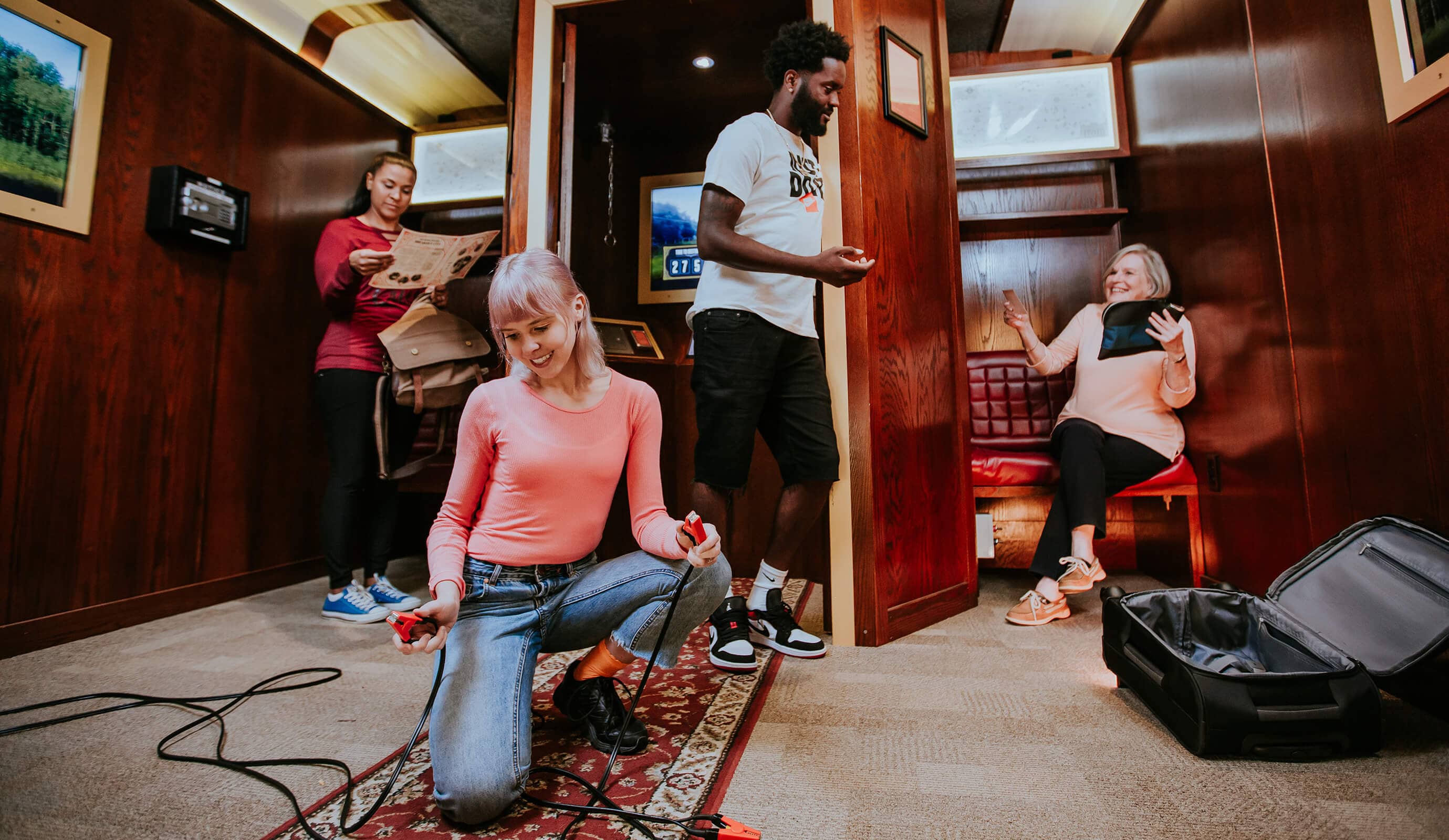Team Strategies: How to Collaborate Successfully in an Escape Room
Groups need to actively listen to each member's insights, appoint duties that straighten with private staminas, and preserve routine check-ins to guarantee emphasis and protect against redundancy. By cultivating a setting that values cohesion and adaptability, groups can considerably increase their efficiency and success rates.
Establish Clear Interaction

To help with clear interaction, it is important to assign a main point of call for info circulation. This function entails summarizing searchings for and proposed approaches to guarantee every person stays on the very same page. In addition, adopting an organized method to conversations can prevent chaotic exchanges. As an example, brief, concentrated updates from each employee can keep the team informed without overwhelming them with details.

Appoint Duties Purposefully
While clear interaction sets the foundation for reliable teamwork, assigning duties purposefully ensures that each team member's strengths are made use of properly. In a getaway space scenario, the time-sensitive and intricate nature of challenges necessitates an efficient approach to job delegation. By determining and leveraging individual competencies, groups can enhance their analytic abilities and boost general performance.
First, analyze the distinct abilities and qualities of each participant. A person with a keen eye for information may succeed in discovering hidden things, while a sensible thinker might be better fit to fixing puzzles. It's just as essential to have a leader who can manage progress, manage the timeline, and make decisive telephone calls when required. This duty typically calls for solid business and social abilities.
Second, make sure that duties are flexible and adaptable. As new difficulties arise, the group must be able to pivot, reapportioning tasks as needed. This versatility aids keep energy and prevents bottlenecks that could happen as a result of stiff function projects.
Inevitably, a tactical technique to duty assignment not only makes the most of the toughness of each staff member but also fosters a cohesive environment, driving the group in the direction of an effective getaway.
Use Diverse Skills
Recognizing and harnessing the varied skills within your group can dramatically raise your performance in an escape space. Each staff member brings special toughness to the table, and successfully leveraging these abilities can expedite analytic and boost total effectiveness. site link A group participant with strong analytical abilities might stand out at analyzing complex codes or patterns, while an additional with keen observational capacities may promptly find concealed clues that others might moved here ignore.
Efficient interaction is essential to making use of these varied abilities. Encourage staff member to articulate their understandings and concepts promptly, making certain that all possible solutions are considered. This inclusive method promotes a vibrant setting where creative thinking and crucial thinking can prosper. In addition, appointing tasks that align with each member's staminas can stop bottlenecks and guarantee that progress is continuous.
Moreover, diversity in abilities frequently equates to diversity in believing styles, which is indispensable in a retreat area setup. While some obstacles might require rational thinking and accuracy, others may take advantage of creative and side reasoning. By identifying and leveraging this diversity, teams can attend to a more comprehensive range of difficulties better, thus raising their opportunities of an effective retreat.
Manage Time Successfully

First, assign first mins for a quick survey of the room. Identify visible puzzles and divide jobs based upon staff member' strengths, guaranteeing that nobody is idle. Establish interior time checkpoints to assess progress occasionally; for circumstances, objective to have half the challenges solved by the mid-point of the video game. This technique can help maintain the team concentrated and avoid time from escaping undetected.
Additionally, avoid passage vision. If a challenge is taking too long, revolve employee or carry on to an additional difficulty, returning later with fresh viewpoints. Interaction is paramount-- keep every person upgraded on solved problems and staying jobs to avoid redundant efforts.
Finally, utilize any tips or clues moderately yet purposefully - best escape room. Knowing when to request help can conserve useful time. By adhering to these time monitoring concepts, groups can substantially improve their review chances of a successful and satisfying getaway area experience
Debrief and Mirror
Representation is an important element of team advancement and improvement in the context of escape rooms. Once the difficulty is completed, whether successfully or not, it is essential for the team to involve in an organized debriefing session. This process allows employee to evaluate their efficiency, identify toughness, and pinpoint areas for improvement.
Start the debrief by reviewing what worked out. Highlight certain instances of reliable interaction, problem-solving, and partnership. Identifying these positive habits reinforces them and urges their rep in future obstacles.
Discuss minutes of complication, miscommunication, or inadequate methods. Motivate an open and constructive dialogue where group participants can share their viewpoints without worry of criticism.
Final Thought
In verdict, successful collaboration in an escape area is based upon clear communication, tactical duty projects, the efficient usage of diverse abilities, and efficient time administration. By developing a natural and flexible group atmosphere, the possibility of efficiently addressing puzzles and accomplishing the purpose of getting away the area is substantially enhanced.